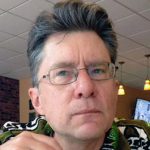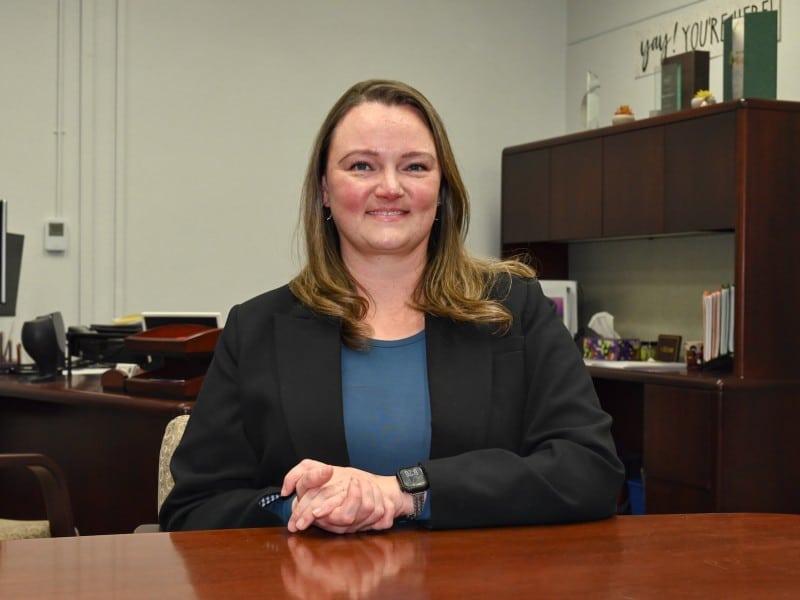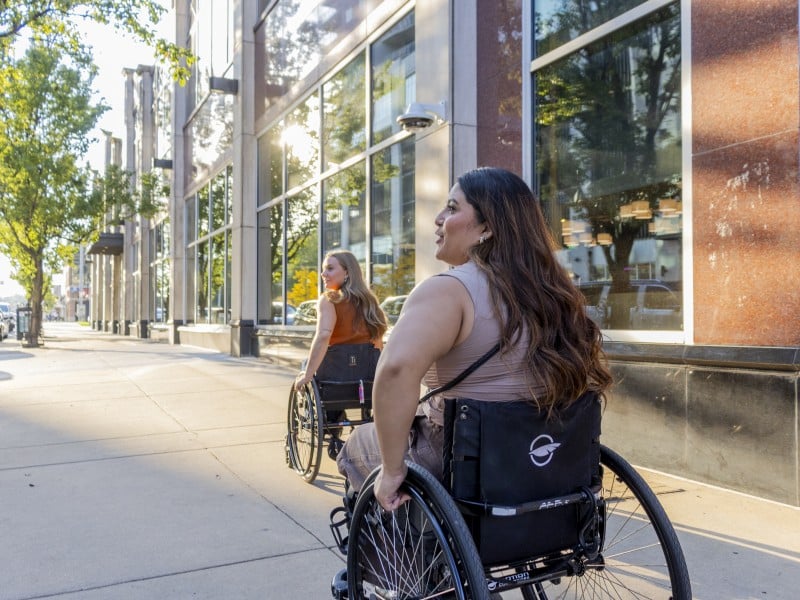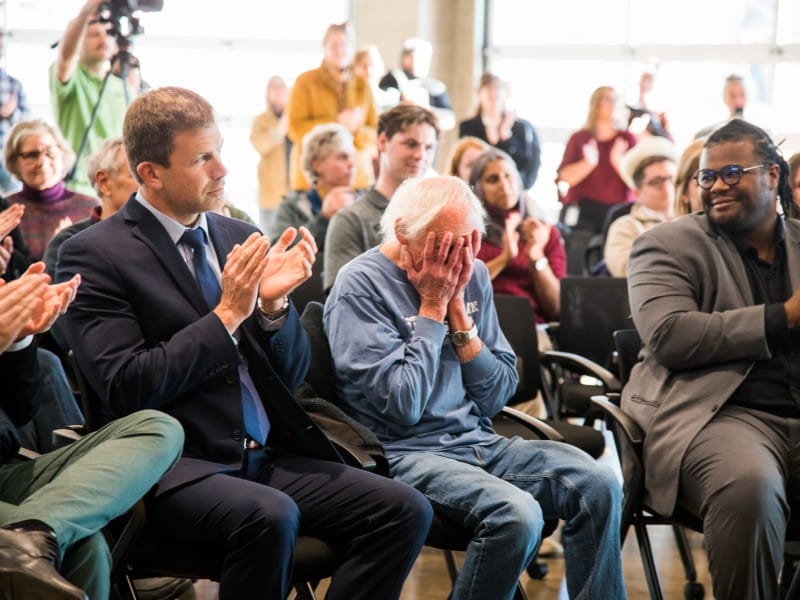Cause for trust: Kalamazoo’s League of Women Voters protecting democracy for everyone
"At the 2020 presidential election, I was observing the Kalamazoo County Board of Canvassers…. They spent an entire hour because there was a one-vote discrepancy in one of the precincts." When they figured out the discrepancy, "everybody broke out into applause."
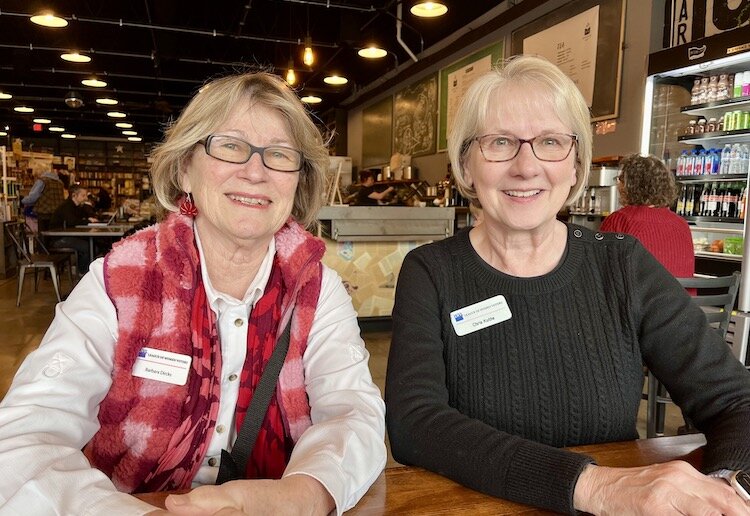
Editor’s Note: For over 100 years, the League of Women Voters has believed in the “power of women to create a more perfect democracy.” Founded in 1920 by leaders of the suffragist movement in Chicago, the ‘League’ (as it’s affectionately called) is a nonpartisan, unbiased, activist organization that believes that voters “play a critical role in democracy.” The League now has over 700 chapters in 50 states.
The Kalamazoo Chapter was founded just five months after the Chicago Chapter and has been going strong ever since, providing education and election support on major policies and all political candidates. The League publishes and provides free comprehensive voter guides of local, state, and national elections, sponsors candidate and ballot issue forums, provides voter registration services, and participates as election poll workers, among many other projects.
On the Ground Kalamazoo’s Mark Wedel recently met with local LWV Kalamazoo co-presidents about the League’s vital role in preserving and protecting our democracy and educating residents about important issues and voting rights. With the presidential primaries in Michigan around the corner and the cynicism that has risen around trusting elections, the League’s role is more critical than ever.
KALAMAZOO, MI – It was a hot topic on the internet and in the news last week, happening the day we met with the co-presidents of the League of Women Voters, Kalamazoo Area.
The Colorado Supreme Court, under the auspices of the 14th Amendment, ruled to bar a former president, who may have been involved in an act of insurrection, from their primary ballot. The United States Supreme Court was about to decide if Colorado could legally do that. Were Colorado’s actions aligned with the Constitution, or….?
Chris Kuthe and Barb Dircks sat silent, with poker faces.
So…? We should state for the record they have no opinion they’re willing to share about this Supreme Court case.
“This is correct, this is correct information,” they both say, with Kuthe cracking a bit with laughter.
The LWV is famously nonpartisan. It has been since 1920 when it formed out of the fight to get women the vote.
The League will not tell you who to vote for. They will not promote voting only to people of specific communities, classes, or political leanings. They want everyone to vote. They have registration drives aimed at all. Their voter guides feature unaltered positions straight from the candidates.
(Full disclosure: The wife of this writer, Mark Wedel, is a League member and local Voter Guide editor Jules Isenberg-Wedel.)
The LWV is “a grassroots, non-partisan, volunteer organization,” Dirks says.
The League does “have a reputation of being old white women, so we’re really trying to change that image,” Kuthe says. They’ve had some success, and have reached out to the local universities and colleges, and local communities of color. “We’ve got some younger members, we’ve got members from a lot of different communities, so we’re working at that.” But they always could use some new volunteers, they both say.
Kuthe adds, “We are nonpartisan, but we are political. We never endorse a candidate or a party, but we do take stances on issues that are important to us.”
The League’s national stances include working to try to ratify the Equal Rights Amendment into the Constitution, ending the Electoral College, and supporting reproductive health rights.
That side of the League doesn’t interfere with their main stance, that all citizens should participate in self-governance.
In an era when “it’s all rigged” seems to be a rallying cry when one side loses an election, how does the League get people out of their cynicism, get out the vote, and educate voters that the system is not rigged? That everything is working as it should in local, state, and federal elections?
Trusting elections in an age of cynicism
The League doesn’t just assume that elections are all running as they should. As an elected official once said, they “trust but verify.”
“First, we observe the process,” Kuthe says.
“We were just at the public accuracy test (for voting machines), where they tested the voting tabulators on February 1. We had league members throughout the county observing that test, and I’m glad to report that it went well everywhere.”
In addition, the League has observers at the polls when the voting happens, and then, “We observe the Board of Canvassers after the election to make sure the election happened as it should,” Kuthe says.
At the public accuracy test, in most precincts in Kalamazoo County, League members were the only ones who showed up to observe.
This type of inspection, however, is open to any citizen. “Often we have clerks say, ‘We’ve never had anybody show up at this before.’ And we (the League) never went to this before the last few years,” Kuthe says. They began observing inspections as “the questioning of the effectiveness of the elections and the security” became an election season issue.
Does it seem that more citizens are feeling like the election process is being kept a big secret, that there’s a cynicism that makes them think someone other than voters is pulling the levers? And many regular citizens aren’t feeling heard, yet these citizens don’t get involved in what might be somewhat boring areas of citizen participatory governance. Is this just a rhetorical question?
“It is kind of, but at the same time it’s a really relevant question,” Dirks says. “Because when we were doing our table registration downtown in the Kalamazoo Library, we had homeless and other people feeling disenfranchised. And they would come up and go, ‘Oh, there’s no point in registering…'”
It’s a “self-sabotage kind of behavior,” Dirks says. Yet, these fellow citizens “want somebody to engage and give them hope of a kind.”
Another time registering voters at Bronson Park, “a young man walking along, stopped, and he said, ‘Eh, my vote, one vote won’t count.'”
Dirks told him about Proposal 2, the fight to end gerrymandering in Michigan, which became an amendment to the state constitution forming an independent redistricting commission.
“That started from voters, not politicians,” she told him. Literally, just one person, Katie Fahey, began Voters, Not Politicians, which got Prop. 2 on the ballot. “That started because one person said, “Wait, I think we should be able to have a say about this,” Dirks says.
They had about a half-hour of conversation, ending with him registering to vote.
Engagement is important, Dirks says, especially with people full of cynicism. “We don’t pretend to be, you know, ‘You’ve got to do it our way or the highway.’ We’re all about the educating, the democracy.”
It seems like many in the past few generations, going back to the time of Vietnam and Watergate, and up to the age of social media hot takes, have a deep distrust in the government, and the process. They are easily manipulated to think it’s all rigged.
“Yes,” Kuthe agrees.
She thinks about Jan. 6. “I also think when what happened in the last presidential election, our Constitution helped.”
One side of the 2020 election — we should note that Kuthe and Dirks didn’t say which — made an effort to change the results.
The system held. “Mike Pence said no. The Secretary of State in Georgia said no. You know, people stood up,” Kuthe says. “And I have to trust that that’s what will happen in the future, that people will do their job. And that’s what gives me hope, makes me able to continue on.”
Informing Kalamazoo voters
The LWV is in a moment, nationally, where they expect a refocusing, Kuthe and Dirks say. The League’s national president, Dr. Deborah Ann Turner, died unexpectedly on Jan. 28.
In Kalamazoo, League members expect to continue their mission to inform voters as usual. Key to those efforts are the Voter Guides and their candidate forums.
The League also has its own volunteer reporters, who go out to commission meetings, school board meetings, and the like, and take notes on local issues and actions.
This information informs the questions the League asks local politicians in the guide and during forums.
People running for local elections get to respond to the League’s questions. Responses in the guide are very lightly edited — only libelous or slanderous statements are cut, and blatantly offensive language isn’t allowed. But if, for example, a candidate for a school board sends in a response full of grammar or spelling errors, those errors go into the guide. It’s not the League’s job to make politicians look good or bad — it’s all for the voters to decide.
Dirks says, “We make every effort to go into all communities.” The same paper edition of the Voter Guide is distributed to barber shops in the Northside and diners in rural Kalamazoo County.
Responses during the forums are, of course, for all to see live. But both efforts to let voters know what’s on local politicians’ minds face the same difficulty, “getting all candidates to participate,” Kuthe says.
Are there any specific ends of the political spectrum, any party, that seems reluctant to participate in League forums or respond to the guide?
Kuthe responds, “We’ve reached out to the Kalamazoo County Chair and had a meeting with her to try and alleviate this problem. We met last spring, a year ago. To try and prevent this from happening again. So we’ll see whether we get more participation or not.”
That’s the chair of the Republican Party?
Kuthe answers, “Yes.”
Mis and disinformation
Asked about the state of Kalamazoo’s electoral system, Dirks says “Meredith Place is phenomenal. We’ll just pat her on the back.”
Place is the Kalamazoo County Clerk/Register of Deeds.
Early in-person voting begins Saturday, Feb. 17, for the Feb. 27 primary elections. Place is effectively dealing with the changes needed, Dirks says. “Her ability to communicate all the intricacies of this new way — she’ll talk to anybody, answer whatever questions. And has facilitated the hiring of extra bodies with a limited budget so that they wind up being able to organize 17 precincts to follow the same set of rules,” she says.
“We have relationships with a lot of local clerks and they are all very competent, very much want to make sure they’re following by the book,” Kuthe says. “And I feel good.”
There are signs of stress in local clerks, Dirks says, a result, again, of pressure put on them during and after the 2020 election.
But, again, the system resisted any attempts to subvert it.
Kuthe says, “I think the way Michigan elections are organized has its own strength as well. It’s decentralized. It’s paper ballots that can be traced and recounted. The tabulators are not connected to the internet. So I think the way our elections are organized lends itself to further confidence.”
Dirks adds, “I think that wherever there is mis- and disinformation, it’s because there are people who would like to spawn mis and disinformation.”
Dirks asks, “How do we raise voters who can be critical thinkers? It’s a challenge for anybody.”
“Anybody that questions the security of our elections, I always say, you should become an election inspector, because then you’ll just have more confidence in the system when you observe it,” Kuthe says.
Kuthe recalls, “At the 2020 presidential election, I was observing the Kalamazoo County Board of Canvassers…. They spent an entire hour because there was a one-vote discrepancy in one of the precincts. And they made I don’t know how many phone calls. They put it on speakerphone so everybody in the room could hear and observe, and traced it down,” she says.
When they figured out the discrepancy, “everybody broke out into applause,” Kuthe says. “And that was happening all over the country. It just kind of gives me goosebumps thinking that we really do have quite an amazing system, and it should be honored and celebrated.”
Citizens just need to be involved, and not sidelined by cynicism and mistrust.
Dirks says, “I like to think citizenship is a verb.”
Kuthe adds, “We’ve got to participate in the participatory government.”

